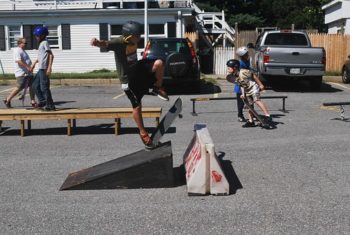Strengthening Parent-Child Relationships After Conflict
Parent-Child Relationships
The picture I posted is one of my mother and I a few years before her descent into Alzheimer’s Disease put her beyond my reach. She taught me so much about strengthening her parent-child relationships. Even in the midst of conflict, her love and respect bolstered our relationship. I will always treasure this gift.
By the time you read this blog, Thanksgiving will be over and the Christmas/New Year Holiday will be coming up soon. Hopefully, your Thanksgiving experience was a positive one. We set enormous expectations for our families during the holidays. Many of us have put down stakes in the post-election divide. These factors may have led to some angry discussions at the Thanksgiving Table. Our children take their cues on how to behave when they watch us. Also, our kids may have felt pressure because we required their “best behavior” at these family events. One of the first places where our children learn about conflict is in their family. How can such conflict strengthen parent-child relationships?
Strengthen Parent-Child Relationships Through Dialogue
When you and your child have had a power struggle, take time to talk about what has happened with these guidelines:
- Clarify your expectations and explain how they were not met.
- Allow time for each person to speak without interruption. Set the timer for 3 minutes per person until each person has presented their own side.
- Come to a mutual agreement about how the rules will be followed in the future.
How I Applied This in My Own Life
My four children used to fight over who  would ride shotgun in my car. They might yell “shotgun” or run and climb into the front seat. They might wrestle with each other. It was a conflict that could never be resolved and someone always felt cheated. This happened over and over again.
would ride shotgun in my car. They might yell “shotgun” or run and climb into the front seat. They might wrestle with each other. It was a conflict that could never be resolved and someone always felt cheated. This happened over and over again.
One day when we were all calm, I asked them to come up with a solution that would be fair to everyone. They agreed that they would take turns. Because they each had a voice in the decision, there was less conflict over this issue in the future. This helped everyone practice resolving conflict in a respectful manner.
These adversarial times in our country provide opportunities for us to strengthen parent-child relationships.
Above all remember how precious your children are. Love and respect this gift.
Karen
Copyright (c) 2016 by GenParenting
 Manage Conflict in the Moment: Stay Calm
Manage Conflict in the Moment: Stay Calm Use timeouts
Use timeouts
 When our children were young, bath-time, picking up toys, brushing teeth were chronic sources of conflict. I made up a chart listing 4 or 5 of these daily activities with a place for stars for successful completion. A certain agreed upon number of stars might mean a Happy Meal from MacDonald’s, a movie, special time with a parent or a play date.
When our children were young, bath-time, picking up toys, brushing teeth were chronic sources of conflict. I made up a chart listing 4 or 5 of these daily activities with a place for stars for successful completion. A certain agreed upon number of stars might mean a Happy Meal from MacDonald’s, a movie, special time with a parent or a play date. Use an old fashioned egg timer, kitchen timer or phone timer to set how much time is allotted for a behavior such as completing homework, getting dressed for school, and picking up toys.
Use an old fashioned egg timer, kitchen timer or phone timer to set how much time is allotted for a behavior such as completing homework, getting dressed for school, and picking up toys.